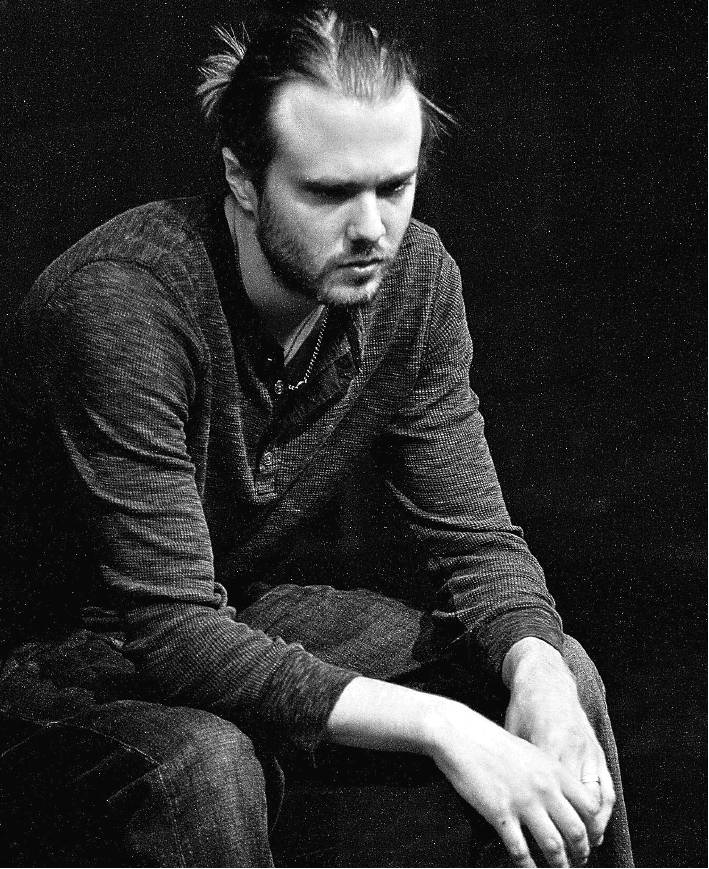Erasing HIV/AIDS stigma
AtticRep project gets audience in on the act to foster compassion, understanding
By Deborah Martin STAFF WRITER
In the case of forum theater projects, the play is not the thing.
Everything around the play is the thing.
“The challenge with actors is the acting is not important,” said Roberto Prestigiacomo, who teaches theater at Trinity University and runs AtticRep, which has done several forum theater pieces over the years. “What is important is the topic.”
Forum theater pieces deal with social issues involving some sort of oppression. In the case of the latest work from AtticRep in collaboration with Trinity’s Mellon Institute for Summer Research, the topic is the stigma around HIV and AIDS.
At each performance, nine actors will perform two short sketches exploring the topic. In one, a young man goes to a clinic where he learns from a brusque counselor that he has tested positive for the disease, then is immediately asked a series of extremely detailed questions about his sex life. In another, a young woman attempts to share a change in her HIV status with her family, which had rejected her years earlier when she was diagnosed and is still fearful that the disease will spread to them.
After each piece is performed, there will be a discussion of what just unfolded onstage. Then the piece will be performed a second time, with one big difference: Audience members are permitted to change the action. They can either suggest ways that the actors can change their behavior or they can come onstage and attempt to alter the direction of the action themselves.
“All we do is really a practice for life,” said Prestigiacomo. “Because if we do this here, then if (audience members) find themselves in a similar situation in real life, then they know what to do because they have practiced it. And it’s very powerful in that sense.”
At a public performance at Trinity University, one woman called out the intern in the clinic scene who was more absorbed by her phone than in the human drama playing out in front of her, as well as the supervisor who was permitting the behavior. Later, two men stepped in for the young man’s brother. In the original scene, the brother immediately blamed the patient’s poor choices for his illness. The first audience member to take over the role spoke to the young man in a soft, kind voice, offering to help him get the assistance he was going to need. The second audience member shifted the moment without a word: He simply hugged the young man and kissed him on the forehead.
In every instance, the audience endeavored to steer the scene in a kinder, more compassionate direction.
“We could take a lot of that compassion and kindness and spread it around many areas in our world these days,” said Cynthia Nelson, CEO of the San Antonio AIDS Foundation.
The organization is one of the places that the piece — titled “End Stigma, End HIV/AIDS: A Forum Theatre Project” — will be performed for invited audiences over the next month. There also will be a public performance at 3 p.m. July 1 at the Esperanza Peace and Justice Center.
The title of the piece is a nod to a new alliance of the same name that is working on ways to raise awareness and combat the disease.
“We feel so strongly that if we can work on stigma, which isn’t a concrete thing — it’s hard to get your head around — we have a chance of ending HIV,” Nelson said.
The forum theater piece, which is designed to spark discussion, can help with that goal, she said.
“I think one of the main things that we can do to reduce stigma is to first educate ourselves and educate the community and the public and to talk about HIV,” she said. “I think it kind of normalizes it in a way — let’s make it less scary.
“Our hope is that we can talk enough about it that it (becomes), OK, you got your flu shot this year, and you got tested for HIV. It’ll just be a part of a regular panel of tests.”
In a sense, the forum theater piece exploring the stigma has been percolating for about three years, beginning with a casual meeting between Robert Hues-ca, who teaches communication at Trinity, and Dr. Barbara Taylor, an infectious diseases specialist, at a mutual friend’s house.
Taylor mentioned that she works with patients who are HIV positive, and Huesca asked her about that. She talked about how damaging the stigma around the disease is: It prevents people from being tested, which means there are a lot of people who don’t know they have it and therefore aren’t being treated. It also means that some who have received the diagnosis don’t seek treatment because of what others might think.
One way to attack that problem, Taylor told Huesca, was through forum theater. She said she wanted to conduct interviews about people’s perceptions and experiences with HIV and testing, then take those interviews and turn them into a forum theater piece that could help spark discussion and, hopefully, prompt more people to be tested.
Huesca was in.
He started volunteering with the San Antonio AIDS Foundation to learn more about the disease. Then he spent last summer recording interviews with 33 people, all but two of whom had been diagnosed as HIV positive. He spent this past spring transcribing those talks.
The sketches in the production — which was crafted and is being staged by actors, community members and students who are part of the university’s Mellon Institute for Summer Research — were based on the interviews.
“Everyone in the production company has a copy of the transcripts,” Huesca said. “It’s about 400 pages.”
At the start of each performance, actors read excerpts from the interviews. And Hues-ca plays a few snippets from the recordings before each rehearsal.
In the recordings played at a recent rehearsal, two men talked about the shock of receiving their diagnosis and about the isolation that followed.
Listening to the voices has been useful, said Chiara Pride, one of the Trinity students taking part in the project.
“I think it’s important that this is grounded in authenticity because I don’t have the lived experience of an HIV-positive person,” Pride said.
Cast member Anna de Luna, an actress whose solo show “The AIDS Lady” is about her experiences as an HIV tester and educator, got a lot out of the transcripts, too.
“Even though I’ve done a lot of testing, and I’ve told a lot of people they were positive, reading all those interviews was still an eye-opener,” said de Luna, who has worked in health care for more than a decade. “All the personal stories and the struggles, the depression, the loneliness because of the stigma. So it was sort of like I was new.”
She also was struck by how several of the people Huesca interviewed learned that they were HIV positive.
“They found out not because ‘Oh, I’ll go to my clinic and get my routine check.’ It’s because they were in a hospital emergency room, almost dying,” she said. “So one of the things I hope is that this (project) makes people aware (of the need) to get tested regularly. And then when they go and get tested regularly, they’re going to get a lot of information about how to protect themselves.” dlmartin@express-news.net | Twitter: @DeborahMartinEN
“We could take a lot of that compassion and kindness and spread it around many areas in our world these days.”
Cynthia Nelson, CEO of the San Antonio AIDS Foundation

